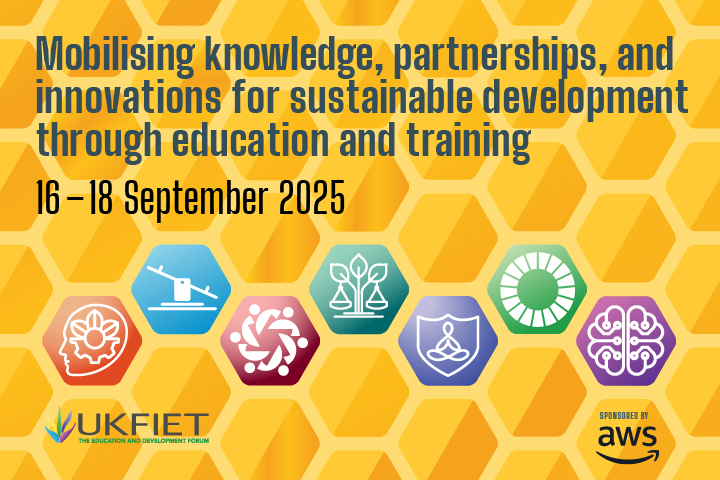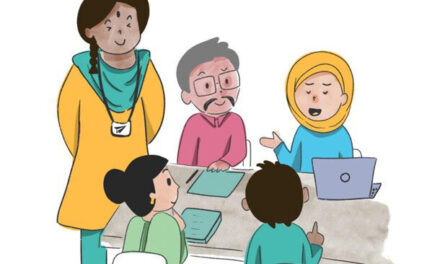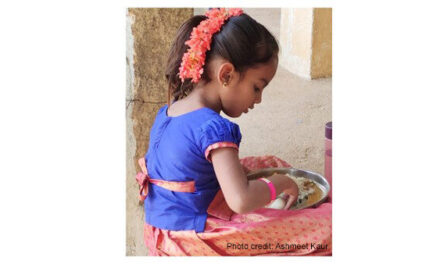If you are joining us for the UKFIET September 2025 conference, these highlights will be useful for deciding what sessions to take part in.
We have 3 full days planned, with papers, quickfire sessions, symposia and creative workshops. You can browse the conference programme and make your selections in the conference app.
The conference Chairs discuss the overall conference theme:
In a world reeling from intersecting crises – climate breakdown, conflict, economic instability and the erosion of international development infrastructure – the role of education as a lever for sustainable and just futures has never been more urgent. Our conference theme insists on the importance of mobilising – not just generating – knowledge. It asks: How can we better connect rigorous evidence with the day-to-day realities of educators, learners and policymakers? How do we centre the experiences and expertise of local actors in both research and practice? And how do we ensure that the innovations we pursue are just, context-sensitive and transformative? At its heart, this conference is not just about gathering ideas; it is about galvanising a movement.
The Convenors of each of the seven sub-themes have written some highlights about sessions within their streams:
This sub-theme aims to explore how systems thinking can help us better understand and drive transformative change in education systems. Some of the panels address systems thinking at the global level and engage in dialogue with the changing landscape of international aid in education. Many sessions are set to better comprehend how education policy interventions and reforms can move smoothly across different components of an education system. Taken together, the sessions exhibit myriad ways in which context, local ownership and power dynamics can be considered as the fundamental underpinning of a more comprehensive yet nuanced approach to systems thinking.
![]() Equitable partnerships and cross-cultural collaboration
Equitable partnerships and cross-cultural collaboration
Partnerships are the foundation of all aspects of education. Sessions under this theme include stories and opportunities to explore where partnerships haven’t worked, or where teams have been able to step back, reflect and take a critical look at the partnerships they’re involved in. A key element of this theme takes into account the inevitable power structures and imbalances that partnerships operate within. Several sessions focus explicitly on how to make partnerships more equitable. The challenges outlined by authors can seem overwhelming; however, the selected submissions offer up clear reasons for hope, and practical pathways and recommendations for ways forward.
![]() Inclusion and intersectionality
Inclusion and intersectionality
The exciting element of this sub-theme is the opportunity to critically examine the complex identities that learners hold, in relation to gender, sexual orientation, disability, ethnicity, migration status and socio-economic background, and how these intersect and interact with educational systems and societal norms. While these intersections often expose structural barriers to inclusion, they also reveal opportunities to design more equitable, responsive and empowering learning environments. Sessions will amplify voices often marginalised in mainstream discourse, especially those from the Global South. This sub-theme challenges us to ask not only what works, but for whom.
This blog highlights a couple of exciting areas that will be discussed under this conference sub-theme: AI and non-Western perspectives. The advancement of AI is pushing us to rethink what education is, what it should focus on, and how it should take place. A key question as we move forward with technological education is how we can bridge the digital gap and ensure technology, and more specifically, AI, does not become a new tool of colonisation. As well as sessions highlighting non-Western perspectives in education, this sub-theme will bring discussions and debate on social and emotional learning, teacher training and development, play and project-based learning, foundational skills, and technical and vocational training.
The Learner Safety and Wellbeing conference sub-theme is unapologetically political, particularly at this moment of global ODA retrenchment. Turning away from girls’ education, from safeguarding, from psychosocial support, protection systems, and survivor care is not a neutral act. It is a political choice, and it will have far-reaching consequences. Sessions under this sub-theme push back against the dismantling of systems designed to protect and uplift learners in all their diversity. They ask the hard questions: Who gets to feel safe while learning or trying to learn? Whose trauma is ignored? Whose healing is resourced? Whose conceptualisation of safety and wellbeing is promoted?
![]() The Sustainable Development Goals
The Sustainable Development Goals
With 2030 fast approaching and the Sustainable Development Goals (SDGs) slipping further from reach, this year’s UKFIET conference invites urgent reflection on how education can help turn the tide just in time. This sub-theme is bold in its scope and rich in the diversity of its contributions: from accountability and governance to early childhood development, teacher wellbeing, edtech, and grassroots-led transformation. It asks not just what works, but how, where and why. And in doing so, sessions aim to challenge conventional wisdom and point us to a more inclusive, responsive and data-smart future for education.
![]() Climate and environmental justice
Climate and environmental justice
The Climate and Environmental Justice sessions reflect diverse ways of knowing, doing and researching education. Most of the presenters come from the most climate-affected regions in the world and they have an ask – sometimes understated and often loud and with urgency – to listen and involve those people living at the sharp end of climate crises in building a better world.
The programme includes a Conversations for Change luncheon on Tuesday 16 September about justice-oriented approaches to measuring climate, environmental and ‘green’ education. Throughout September, an online participatory thematic forum will discuss critical questions about how efforts to measure climate and environmental education take into consideration concerns about justice. Find out more about how to join these conversations.
In addition to the many sessions under our seven sub-themes, mark the following in your diaries:
Opening plenary: A field in crisis: reimaging education policy for challenging times





